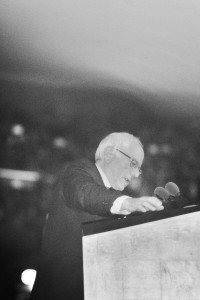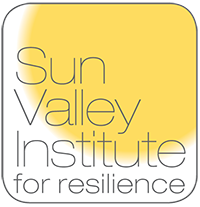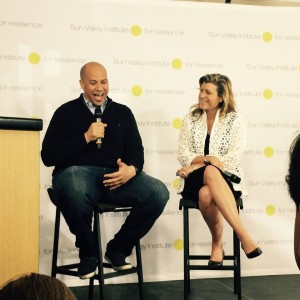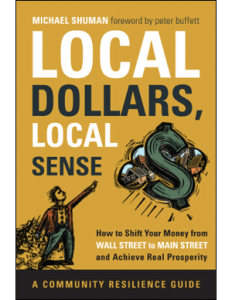Grass Roots
The power of organized people.
July 10, 2018Richard Rohr
Center For Action & Contemplation
People have good reasons to be angry and afraid today. Poverty, racism, climate change, and so many other injustices are causing real suffering for much of the world. Unfortunately, dualistic and oppositional energies cannot bring the change we so desperately need; we cannot fight angry power with more angry power. Only the contemplative mind has the ability to hold the reality of what is and the possibility of what could be. Unless our hearts are transformed, our fears will continue to manipulate our politics, reinforcing a polarized and divided society.
Quaker activist and teacher Parker Palmer has a hopeful, but not Pollyannaish, view. He writes:
Human beings have a well-demonstrated capacity to hold the tension of differences in ways that lead to creative outcomes and advances. It is not an impossible dream to believe we can apply that capacity to politics. In fact, our capacity for creative tension-holding is what made the American experiment possible in the first place. . . . America’s founders—despite the bigotry that limited their conception of who “We the People” were—had the genius to establish [a] form of government in which differences, conflict, and tension were understood not as the enemies of a good social order but as the engines of a better social order.
As “We the People” retreat from the public square and resort to private gripe sessions with those who think like us, we create a vacuum at the center of America’s public life. Politics abhors a vacuum as much as nature does, so nondemocratic powers rush in to fill the void—especially the power called “big money.” . . .
When the Supreme Court gave big money even more power [in the 2010 Citizens United decision], it made many Americans feel even more strongly that their small voices do not count. . . . Wrongly held, our knowledge of the power wielded by big money can accelerate our retreat from politics, discouraging us from being the participants that democracy demands and reducing us to mere spectators of a political game being played exclusively by “them.”
Palmer quotes Bill Moyers: “The antidote, the only antidote, to the power of organized money in Washington is the power of organized people.”
Paulette Jordan.
June 6, 2018‘From Sea to shining Sea. CA to Texas, Florida to Pennsylvania. The people will rise under one Sun.’
#IdahoGovernor2018
Choose the tree.
May 8, 2017Seth Godin:
“The boom emoji gets a lot of play. It happened. It worked. We won.
Boom.
The tree emoji, on the other hand, celebrates the patient and generous acts of planting seeds, watering them, caring for them, and then, in a generation, you have a tree.
It doesn’t even have a noise.
Simple growth. With patience. (I prefer the deciduous tree instead of the evergreen, because the leaves coming in and falling off are part of the deal).
Put me down for the tree emoji.” ?
Bernie Sanders: ‘It’s time to come together.’
July 28, 2016‘Now, more than ever, is the time for millions of families to come together and revitalize American democracy.’
-Bernie Sanders
“As he put it last July, in an interview aired on C-span, when he was asked whether he would ever run as a third-party candidate, “I made the promise that I would not, and I will keep that promise. And the reason for that is I do not want to be responsible for electing some right-wing Republican to be President of the United States.” Sanders has kept that promise in letter, and in spirit, by endorsing Hillary Clinton. He’s doing what he said he’d do, and saying why. “Think about the Supreme Court Justices that Donald Trump would nominate and what that would mean to civil liberties, equal rights, and the future of our country,” Sanders said last night. He does not want to turn over the country to a racist demagogue who would irreparably damage it, when there is a candidate who agrees with him on many, if not all, issues and who is temperamentally and intellectually capable of doing the job.”
[…]
“No President, no matter how well-intentioned or progressive, can make any real change without the moral and pragmatic pressure of a grassroots movement. And he said it again last night, because Sanders is nothing if not consistent. “Election days come and go, but the struggle of the people to create a government which represents all of us and not just the one per cent . . . that struggle continues.”
http://www.newyorker.com/news/news-desk/bernie-sanderss-struggle-continues
Photo:Philadelphia, Pennsylvania – Sen. Bernie Sanders (I-VT) takes the stage to deliver a speech on the first day of the Democratic National Convention at the Wells Fargo Center in Philadelphia. Monday, July 25, 2016.
Credit: Philip Montgomery for The New Yorker
‘…faith, while change moves slowly along.’
March 11, 2016‘Rebecca Solnit Explains Things to Us…’
There’s this idea that political engagement is some sort of horrible, dutiful thing you do, like cleaning the toilet or taking out the garbage. But it can be the most fantastic thing you do. It can bring you into contact with hope, with joy, with a sense of deep connection, with what Martin Luther King called the “beloved community.” Disconnection from a larger sense of purpose and agency, from community and civil society, and from hope are huge factors in unhappiness.
Hating on people has never been a great form of social change, so far as we know.
I have preferences and they’re probably not that hard to guess. But with Obama, people so completely put their faith in: “Oh, we’ll elect this magic, amazing super-human and then we’ll all go home and do absolutely nothing.” The movement that put Obama in office was powerful enough to make really profound change, but everyone went home because they thought he’d do it.
That’s what you see with Bernie Sanders: this infatuation with an almost savior-like figure who will do it all. No, actually, massive grassroots movements need to exist the day after the election. Electoral politics are dismal; I’m more interested in grassroots power, popular power.
[This post originally appeared at In These Times.]
In a dispatch from Paris for Harper’s, writer and activist Rebecca Solnit called the recent climate agreement negotiated there “miraculous and horrible.” This tension between the exciting and the awful, the transformative and the terrifying, motivates her book Hope in the Dark: Untold Histories, Wild Possibilities. Initially written in response to the Iraq War, the book will be re-released this month with a new section on climate change.
Bill Moyers
http://billmoyers.com/story/rebecca-solnit-explains-things-to-us/
Sun Valley Institute for Resilience
July 13, 2015
The Sun Valley Institute for Resilience is a center for public education, policy leadership and investment to ensure economic prosperity, environmental protection and human well-being in its home community of Idaho’s Wood River Valley and beyond.
(US Senator Cory Booker, and Founder/Executive Director Aimee Christensen at the 1st Sun Valley Forum on Resilience)
Senator Booker: “Across America, communities are increasingly facing challenges that are global in nature, from climate change to competition with an ever more interconnected world economy. Expanding the capacity of communities to be resilient in the face of these challenges is an urgent priority. Solving these problems should be about finding and implementing what works, and the expansion and democratization of technology is increasingly enabling communities to make more decisions based on hard data, not hunches. I’m looking forward to discussing how to turn these challenges into economic opportunities that can strengthen our communities and our country.”
SVIR: “In partnership with leading foundations, academic institutions, corporations and nonprofits, the Institute brings together local and global resources and expertise to strengthen the area’s ability to bounce back from harm to the local economy, whether from wildfires, poor snowfall or global economic conditions, and to serve as a global resource to increase resilience far beyond.”
Did you know:
95% of the Wood River Valley’s food comes form outside the valley?
We send $80 million per year out of the Wood River Valley to pay for energy?
From Dayle’s Community Cafe: Deep gratitude to the Sun Valley Institute for Resilience for opening their 1st forum to the public. US Senator Cory Booker & great minds manifesting resiliency with Executive Director Aimee Christensen, Sunday, July 12th, at the Walnut Avenue Mall. Adapt, Survive, and Thrive! Aimee is deeply respected across many sectors of community/local philosophy and commerce. When I first read of this new organization, I intuitively felt the connection and need in our community. This speaks to the grass roots efforts that will bypass policy and government on the national level to allow communities to thrive and evolve on the local level; i.e. not react to issues that effect our lives where we live…e.g. wild fires (still recovering from Beaver Creek), Climate Change (less snow…shorter seasons, greatly effecting our tourism in the valley, our biggest source of income for businesses, therefore, employees), power outages…e.g. Christmas 2010), drought, water rights, but to respond and evolve within the changes. The opposite of resilience is defined as ‘failure’. Failure ‘to absorb disturbance and reorganize while undergoing change.” Truly inspired by this organization and the various leaders in our valley, and beyond, who are involved with this organization and developing projects.
http://www.sunvalleyinstitute.org
(In addition to Senator Booker, other speakers at the 1st Forum, Sunday, July 12th in Sun Valley: Nancy Kete of the Rockefeller Foundation, Raul Pomares, Founder of Sonen Capital, Steve McBee, CEO of NRG Home, Collin O’Mara, CEO, National Wildlife Federation, Marco Krapels of SolarCity, Jeffery Sayer, Director of the Idaho Department of Commerce, Brooks Preston of the Overseas Private Investment Corporation, Brent Stacey of the Idaho National Laboratory, Gary Dirks, Director of the Global Institute of Sustainability at Arizona State University, Peter Horton of Pico Creek Productions, Jeff Goodell of Rolling Stone Magazine, Jennifer Leonard of The CAPROCK Group and Michael Shuman, author of Local Dollars, Local Sense.)
https://www.rockefellerfoundation.org
http://www.postcarbon.org/our-people/michael-shuman/





